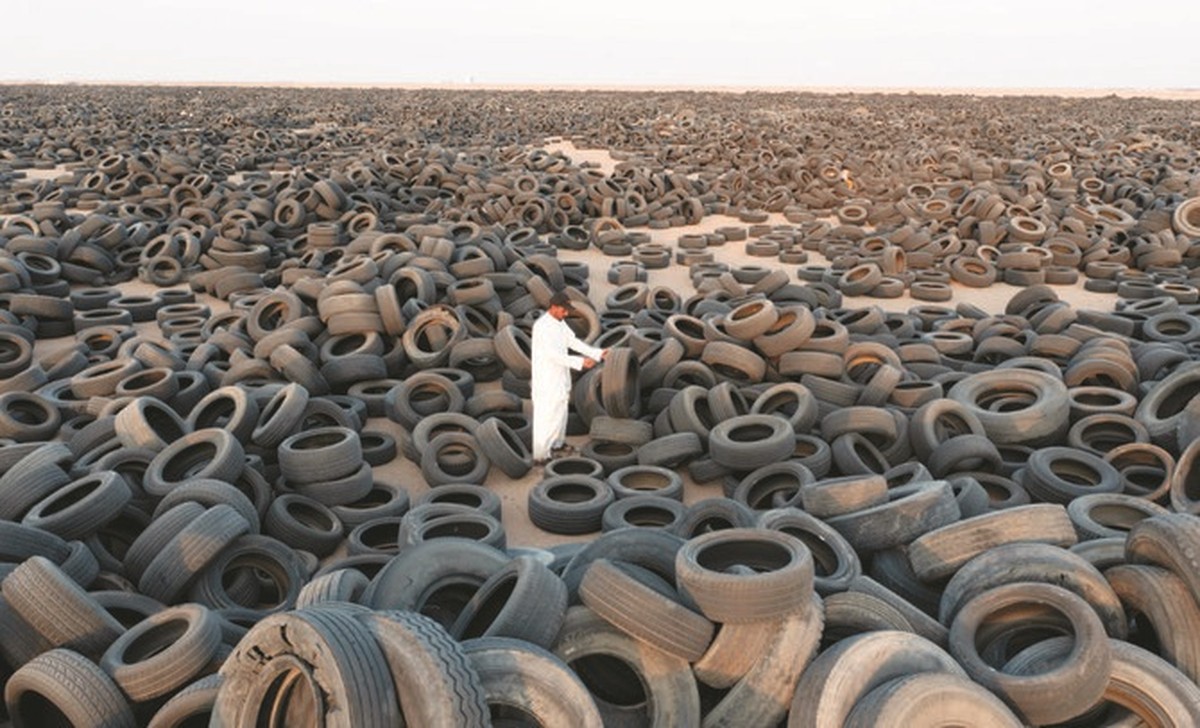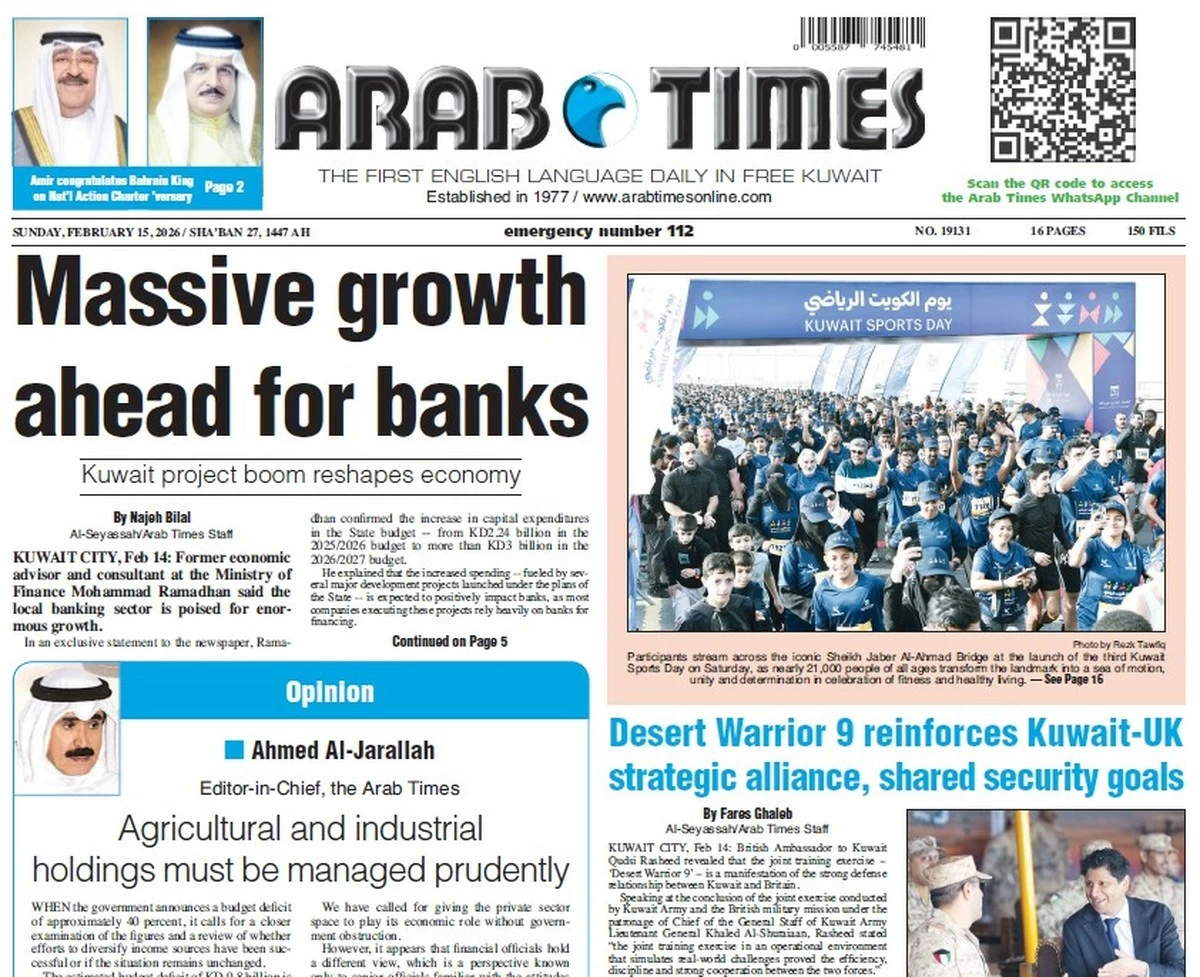21/08/2025
21/08/2025

KUWAIT CITY, Aug 21: Kuwait is moving to transform its stockpile of used and damaged tires into a new economic industry, officials said Wednesday, aiming to turn a long-standing environmental burden into a source of investment, jobs, and sustainable development.
For years, millions of tires were stored in “Rahiya tire dumps,” posing hazards to public health and the environment. Transporting these tires to specialized recycling plants marks a key step in converting the environmental threat into an economic opportunity and establishing a viable new industry.
Kuwait currently operates three tire recycling plants — two in Salmi and one in Amghara. Tires that were previously discarded or burned are now being processed into new products, contributing to the national economy and opening investment and employment opportunities. Official sources estimate that Kuwait generates 1.5 to 2 million damaged tires annually, roughly matching the capacity of existing plants, highlighting the need for expansion to accommodate future growth.
A government official outlined a comprehensive plan to expand tire recycling operations, emphasizing that the issue of used tires has become a major government focus. New, advanced recycling projects are set to convert the environmental challenge into economic value.
The initiative’s economic importance is underscored by international comparisons, particularly India, which has become a global model in tire recycling. India generates annual revenues ranging from $600 million to over $2 billion, demonstrating the dual environmental and economic benefits of the industry. Officials said Kuwait could realize similar opportunities if regulatory frameworks are strengthened and investment is expanded.
The government announced plans to establish additional factories in Salmi to increase production capacity and ensure that all locally generated tires can be converted into economically valuable recycled products.
Environmental benefits are also significant. Waste tires pose risks from fires, emissions, pollutants, and visual blight. Recycling transforms these tires into usable products, reduces dependence on primary resources, and mitigates environmental hazards, aligning economic growth with environmental sustainability.
Kuwait has reinforced its approach through Cabinet directives and tightened municipal regulations for transporting and delivering tires to licensed sites, reducing haphazard disposal practices. Officials said these measures provide a solid foundation for building a growing industry capable of attracting investment, particularly if international best practices, such as electronic tracking platforms used in India, are adopted.
Observers noted that tire recycling in Kuwait has evolved from a peripheral environmental issue to a national project, offering opportunities for the circular economy and demonstrating the country’s commitment to sustainable development. Officials identified six key industrial and environmental applications for recycled tires, including rubber asphalt for roads, stadium and gym flooring, fuel production, insulation materials, alternative fuels, and certain automotive components.
Meanwhile, Prime Minister Sheikh Ahmad Al-Abdullah Al-Sabah chaired a meeting at Bayan Palace to review the management and utilization of damaged and used tires. The session, attended by Minister of State for Municipal Affairs and Housing Abdullatif Al-Mishari, Head of the Prime Minister's Diwan Abdulaziz Al-Dakhil, and senior officials from Kuwait Municipality, the Environment Public Authority, and the Public Authority for Industry, focused on strategies to optimize tire recycling, protect the environment, and generate new financial resources for the state budget.
Officials also reviewed mechanisms to improve the efficiency of public cleaning contracts and oversight of implementing companies. Sheikh Ahmad Al-Abdullah stressed the need to accelerate efforts to utilize used tires and develop effective mechanisms for implementing new cleaning projects, aiming to turn an environmental challenge into economic and environmental benefits.


